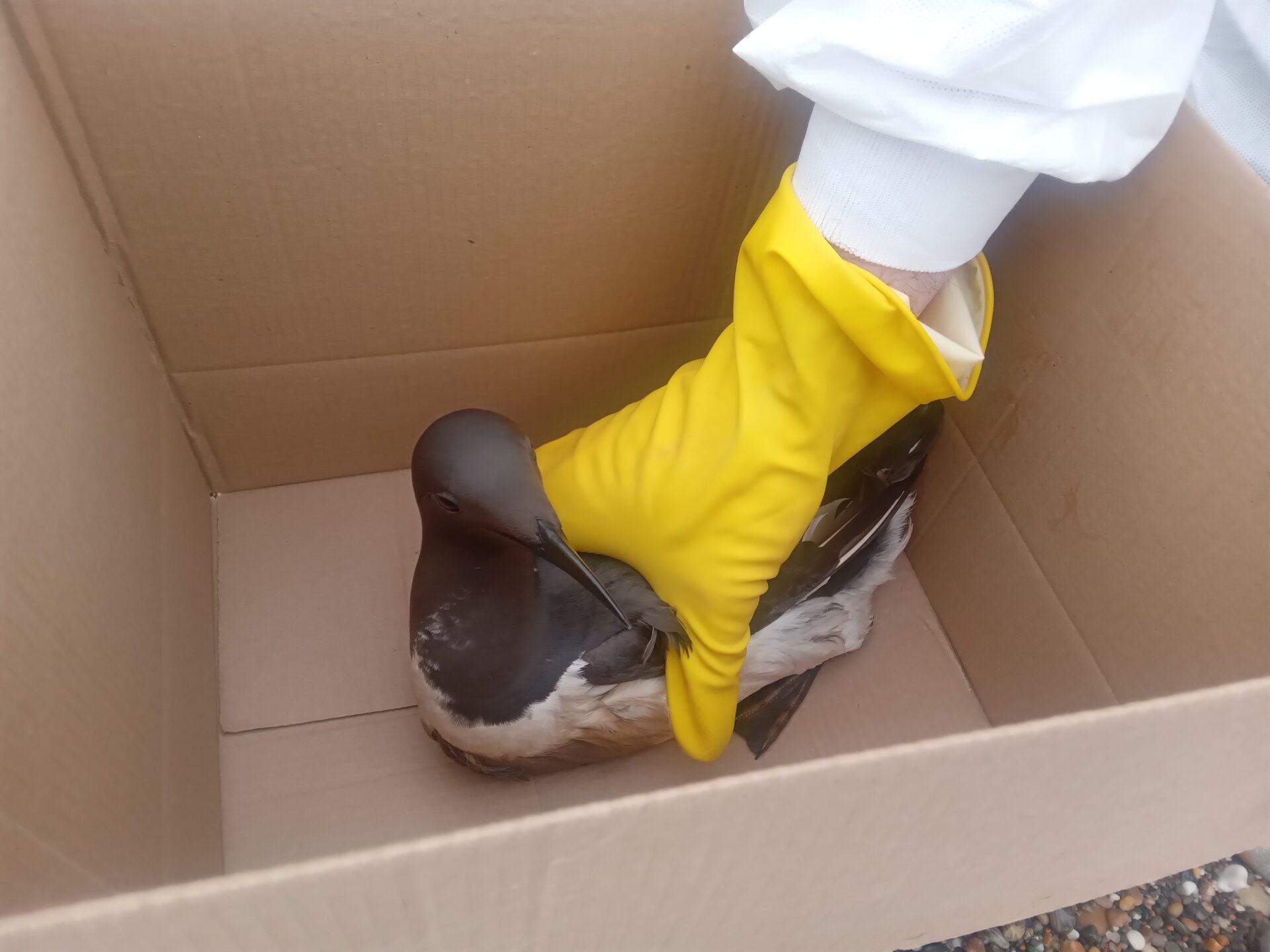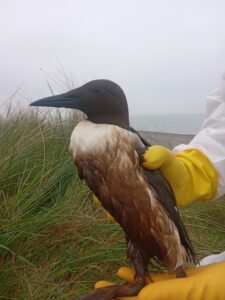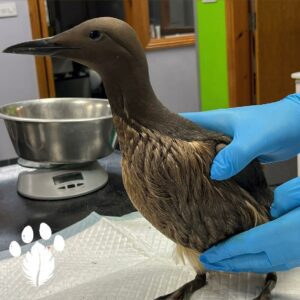In the first week of May, our already busy phone lines grew busier as reports of bird casualties came in from all along the east coast: Newcastle. Kilcoole. Carnsore Point.
There had been an oil spill. It was an event that we and many other organisations hoped would never happen, though one we had anticipated and tried to prepare for as much as we possibly could.
Leading the response, Kildare Wildlife Rescue (KWR) set up a network comprising their own staff and volunteers, National Parks and Wildlife Service (NPWS) rangers, trained Oiled Wildlife Response Network (OWRN) responders, BirdWatch Ireland staff, Seal Rescue Ireland and others to ensure that as many birds as possible could be located, rescued and brought for rehabilitation.
Feathers provide birds with waterproofing that protects them from cold water reaching their skin. Even a small amount of oil can damage the structure of the feathers, compromising their waterproof quality and leaving a bird at risk of hypothermia and a rapid deterioration in body condition.
Oiled Guillemot on Wicklow Beach. Photo: BirdWatch Ireland.
Acutely aware of these dangers, we knew we had to act fast. Finding the birds wasn’t a problem, as reports of oiled birds, primarily Guillemots, came flooding in from both responders and the public. However, catching them was a slightly trickier task that required great skill, patience and care. Rescuers had to take care not to spook the birds and drive them back into the water. Guarding their own safety was also crucial, with all responders suiting up in PPE to protect themselves from the likely carcinogenic substance.
Approximately 140 birds were retrieved, but this represents only a fraction of the birds affected, as it’s likely that many multiples of that number perished far offshore, never to be found. Those that were rescued may have been the so-called “lucky ones”, but they still had an extremely trying journey ahead.
The rehabilitation process is both lengthy and complex, with each bird having to pass a number of veterinary examinations before it can go through the washing process. The washing procedure can last up to 45-minutes and is quite a stressful experience for a bird so it is crucial that they are in good condition before it begins. Once the washing process was complete, each bird remained in care at KWR, where they were closely monitored until they were deemed fit for release.
Oiled Guillemot at Kildare Wildlife Rescue. Photo: Kildare Wildlife Rescue.
Several of these birds were successfully released at a beach in County Wicklow recently, three weeks after they were rescued. Many others will surely follow but sadly, there will be others too weak to withstand this anthropogenic disaster.
As a member of the Oiled Wildlife Response Network (OWRN), BirdWatch Ireland has been calling for the establishment of a formal national oiled wildlife response plan for many years. No words can convey the urgency of this better than the distressing images of oil-slicked seabirds fighting for their lives on Ireland’s beaches.
The recent spill should serve as a warning signal for our leaders. It’s not a matter of if, but when, another similar disaster will occur and we need to do all we can to ensure we’re ready.




